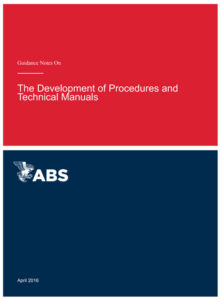

Technical writers bridge a gap between the ground-level understanding of consumers and the galaxy-brain product details embedded in the minds of engineers and developers.
Technical writers are the people who put together the help articles you turn to in confusion when you can’t get your printer to work or have trouble pairing your cool new Bluetooth earbuds with your phones. They wrote the manuals that the power plant operators who generate your electricity consult when it’s time to turn up the juice, and they cataloged the guidelines for maintenance that mechanics follow when changing the oil in your car.
Learning how to become a technical writer isn’t a straightforward process, however. Although you can earn a degree in technical and professional writing, that’s usually only the first stop on the career journey.
Technical subjects require technical understanding in order to explain complex concepts with clarity and concision.
That means a tech writer has to have at least a conceptual command of the industry and technology they plan to write about. So, your college education should include the right number of courses to lay the groundwork for future understanding of important areas of technology. That might include:
- Computer programming concepts and languages
- Industrial design
- User interface and user experience concepts
- Finance and accounting
- Hard sciences like physics and biology
- Basic anatomy and physiology
Some technical writers may need strong combinations of several of those fields. For example, if you want to write documentation for a major healthcare information system, your users may include doctors and billing experts, patients and front desk staff. To write documentation for them will mean translating concepts of health and data analytics into instructions that will make sense and flow intuitively from action to action.
Expanding Demand for Tech Writer Jobs Need Graduates With Skills in Both Artistry and Science
 As society has become systematized and technologized, technical writer jobs have exploded. Every new high-tech gadget that gets built has an instruction manual that has to go with it; every new program has help files or how-tos written to help users understand it. Even subroutines and programming libraries, which the average consumer never sees but underlie every element of modern software development, each need tidy, detailed documentation written so other programmers know how to interface with them.
As society has become systematized and technologized, technical writer jobs have exploded. Every new high-tech gadget that gets built has an instruction manual that has to go with it; every new program has help files or how-tos written to help users understand it. Even subroutines and programming libraries, which the average consumer never sees but underlie every element of modern software development, each need tidy, detailed documentation written so other programmers know how to interface with them.
There are even technical manuals for writing technical manuals!
Technical writing is a field that almost perfectly combines the detail and precision of the sciences with the descriptive and literary techniques of the arts. And that makes it a job that is almost uniquely aligned with a traditional degree in the arts and sciences.
A Technical Writer Job Description Combines Writing Talent with Deep Subject-Matter Knowledge and Adaptability
A technical writer is really just a very modern kind of translator. In the same way that multilingual interpreters take words, phrases, and paragraphs from one language and turn it into an understandable equivalent in another, technical writers take in detailed technical concepts and turn them into descriptions and instructions that make sense to a less technical audience.
In the same way that some words or ideas in foreign languages might not translate directly to English, many of those technical concepts will require the use or adaptation of similar metaphors and constructs in order to be accurately described.
That makes technical writing harder than it sounds. Literally correct descriptions may be technically accurate, but also useless to the intended audience.
Not only do technical writers have to understand the technologies they are writing about, but they have to know their audience intimately as well. Not every technical writing job is aimed at the mass market. Many manuals, white papers, and help articles are aimed at professional users who already have a high level of technical understanding themselves. Trying to break concepts down for a layperson is only wasting time for those readers. So technical writers have to be able to adjust their use of jargon and concepts to fit the intended audience.
Technical Writer Jobs Involve Developing All Kinds of Instructional Materials and Manuals
 What does a technical writer do with that highly specialized skillset? The products they produce can go well beyond just a help manual or how-to guide. Technical writers today are also being asked to craft such innovative works as:
What does a technical writer do with that highly specialized skillset? The products they produce can go well beyond just a help manual or how-to guide. Technical writers today are also being asked to craft such innovative works as:
- Scripts for demonstration videos
- Phone support scripts
- Interactive chat text for AI assistance bots
- Text for illustrative graphics and photo captions
- Information or use-case diagrams
Those all join the usual library of technical writing that comes with products or services, including:
- Industry-focused white papers
- User documentation, including:
- Manuals
- How-to guides
- Support documents
- Advertising text copy
Some technical writers focus on producing documents not for outside users, but for other staff inside their own organization. These might be other engineers and product developers, or for non-technical departments such as sales and marketing. They sometimes play a big role in contributing to or reviewing marketing materials, making sure they are technically accurate while still bringing the zip demanded in advertising campaigns.
Tech Writer Jobs Involve Using Many High-Tech Tools to Organize and Visualize Subjects
Like any writer, a technical writer will spend the bulk of their working hours at a keyboard. They must be familiar with the usual suite of office productivity software, with the keyboard shortcuts of Microsoft Word or Google Docs baked into muscle memory. Adobe layout and publishing products are also commonly used in the field.
 Technical writing is more collaborative at heart than many other types of writing, so writers also make use of communication tools and other information-sharing programs like Slack, Dropbox, and Teams to coordinate with developers, editors, and engineers working on the product.
Technical writing is more collaborative at heart than many other types of writing, so writers also make use of communication tools and other information-sharing programs like Slack, Dropbox, and Teams to coordinate with developers, editors, and engineers working on the product.
Technical writers also have to have some general familiarity with the tools they are writing about. So they may find themselves acting as users of the beta or pre-release software or products that they will be describing. A good general sense of the paradigms for using products in your field of expertise, from lawnmowers to iPhone apps, is always necessary.
Because a picture can be worth a thousand words, technical writer jobs often require some level of expertise with image creation and manipulation tools like Photoshop.
Mastering the Right Mix of Skills for Technical Writer Jobs
Every technical writer needs at least some background in the technical field they will be writing about. If you don’t bring that to the table when you are hired, you at the very least need the kind of general teachability it takes to pick up concepts and details in new subjects quickly—a core asset of any liberal studies graduate.
Tech writers also have to have excellent verbal communication skills, over and above their writing talents. Part of the job requires mining the brains of even more technical people, those who are actually building products or writing programs. That means interviewing and getting feedback from those folks, who are famously difficult to communicate with. So tech writers often have to bring enough verbal communication kung fu to the table for two.
Adaptability is required because technical writers aren’t writing about old news. Those manuals and white papers were already released. You are going to be covering the new hotness, and your brain has to be able to keep up with the changes from last month’s latest and greatest.
Technical writing is a field where prior knowledge only gets you so far. More important to almost every technical writer is the ability to take in and process new information, then to restructure and present it in a way that readers can grasp and use.
Equally important in technical writing is discipline. It’s not a creative exercise in the way that writing ad copy or news articles can be. Technical writers have to hit their marks, covering all the elements of their subject with consistency and clarity. They frequently are required to follow restrictive style manuals and adopt a voice decided by other decision-makers.
The process that tech writers go through to build these artful and informative instructions draws on the same kind of interdisciplinary knowledge as a liberal arts degree offers. Just as importantly, a liberal arts education offers superb training in the skill of writing and description.
Most Positions Today Are Classified as Remote Technical Writer Jobs
 Technical writing is usually very project-oriented. Technical writers don’t expect to write about the same software or subject for their entire career. They are usually most in-demand during product development and release. While there is some ongoing work surrounding many technical writing projects, the norm is for writers to move on to some fresh release after development wraps up.
Technical writing is usually very project-oriented. Technical writers don’t expect to write about the same software or subject for their entire career. They are usually most in-demand during product development and release. While there is some ongoing work surrounding many technical writing projects, the norm is for writers to move on to some fresh release after development wraps up.
Technical writers are employed directly by many major engineering and manufacturing companies. A significant percentage, however, work as freelancers. They may handle multiple clients and different projects at the same time, or take a contract with a company to deal with one particular project as it moves toward completion.
Any industry that has a significant technical component may employee tech writers, but they are definitely concentrated most heavily exactly where you would expect: software and engineering. According to 2020 data from the Bureau of Labor Statistics (BLS), three of the top five industries that tech writers work in are:
- Computer systems design
- Architecture and engineering
- Scientific research and development
The other two are consulting and employment services—more than 7,000 writers working on contract or in outsourced positions, on top of those who deliver their services as independent freelancers.
While the COVID-19 pandemic made most positions that deal with technical industries remote, many tech writers have been working remotely for decades. The combination of shifting between different projects and the fact that freelancing is so common has made the work particularly open to remote work.
How To Become a Technical Writer
There are basically two paths into technical writing:
Become a writer who acquires the technical skills to understand and describe a technology
Become a technologist who learns how to write and communicate clearly
Technical writing jobs require a college education, but because of that multi-pronged pathway, there is no specific major that is required. Those who come into the industry first and foremost as writers will often major in fields such as:
- English
- Communications
- Technical and Professional Writing
- Scientific Writing
Those on the other track, however, will most often have a bachelor’s degree in the field most closely related to the technology they will be writing about. That can include subjects such as:
- Computer Science
- Chemistry
- Nursing
- Accounting
No matter which path you take, at some point you will have to pick up the kind of skills from the other side of the profession—learning to write well if you have technical expertise, or developing technical expertise if you are already a writer.
For most technical writers, that’s a process that goes beyond schooling, but it almost always starts with a college degree.
Your College Degree Shapes Your Potential As a Technical Writer
It’s possible to become a technical writer with only an associate’s degree, but even entry level technical writer jobs usually specify that you hold a bachelor’s degree of some type.
The fact that there is no specific major required for technical writers is one of the things that tells you that a bachelor of liberal arts degree might be a good way to prepare for entry level technical writer jobs. The interdisciplinary nature of a liberal studies program is famous for allowing mixing and matching of wildly different subjects. That’s an opportunity to pack all the kinds of details you might want to absorb in, say, computer programming together with the traditional writer’s arts of grammar and rhetoric.
Although there is no specific degree required to get into technical writing, there is still a well-defined set of courses that you can pursue to prepare for a successful career in technical writing. While you can check off many of these courses in a typical English or Communications degree path, there are solid reasons to explore liberal studies instead:
Exposure to classic explanatory works and thinkers – You might think it’s tough to describe the electrical wiring harness of the GP7200 two-spool high-bypass turbofan jet engine, but once you’ve dissected Kant’s Critique of Pure Reason, almost any other kind of explanatory writing will look easy. A liberal arts education exposes you to hundreds of writers who have taken extremely hard concepts and explored all the different ways of breaking them apart to make them understandable. That’s a key library of techniques for the technical writer, and will improve your process even if Kant wouldn’t have recognized a cell phone if it fell on his head.
Plenty of writing practice and critique – Writing, of course, is one of the key disciplines in traditional liberal studies. A liberal arts education is jam packed with opportunities to write and to get feedback on that writing. Essay after essay, covering multiple subjects, will fill your college years, each of them carefully reviewed and graded to give you guidance on your clarity and focus. Equally important is the fact that most academic writing has to conform to careful style guides, giving you plenty of practice in lining your own work up with styles set out by other people.
Ability to stack science and technical coursework in the curriculum – Liberal arts degrees are famously flexible when it comes to course requirements. Once you fulfill the general study requirements for your bachelor’s degree, you are generally open to building out your curriculum, with input from your advisors, toward whatever kind of fields and specialties hold your interests. That allows you to take all of the classical and humanities coursework of the liberal arts and layer the sciences on top of them: courses in computer programming, engineering, mathematics, or dozens of other technical disciplines can give you the applied expertise you need to write with authority on those topics.
Humanities studies offer perspectives on and insights into your audience –Audience is so important in technical writing that any little insight can help. You have to present your instructions in ways that click instantly and intuitively in the minds of a reader. Sunderstanding the mindset and thinking of individuals and cultures is one of the key pieces that an education in the humanities has to offer. You’ll learn the basics of both individual and social psychology, with plenty of historical examples of how cultural trends and influences develop. Although you may study the French Revolution in class, what you learn might have enormous impact on your understanding of Facebook and TikTok.
Most Tech Writer Jobs Ask For Experience Right From The Start
Tech writer jobs are not immune from a peculiar tendency of the technology industry to demand years of experience in technologies that are sometimes only months old. But it’s an indicator that real-world track records are considered to be king over any degree credentials that you might bring to the table.
Fortunately, that two-track process to becoming a technical writer gives you two options for gaining that experience.
To someone with training as a writer, writing jobs allow you to build your credentials toward technical writing. Even leaning toward the subject matter in the field you plan to write about will look good on a resume, even if the substance is not truly technical writing.
As a professional in a technical field, simply working in that field will build your years of experience and improve your understanding and explanatory skills. There’s almost no technical job that doesn’t involve some level of writing along the way, from drafting memos to sketching out emails to documenting API calls. Those are all tidbits that you can use when you make the big jump into a technical writing position.
Of course, the highest levels of technical writing will require previous dedicated technical writing experience in the same field or working on the same type of documents. The shifting nature of technology often allows you to apply similar experiences to new fields, however; if you’ve been a tech writer handling C# library documentation, you can probably segue that pretty easily into writing Java app docs.
Certificate Programs and Bootcamps Help Prospective Technical Writers Hone Their Expertise
Whether you are a technician who wants to jump up your writing skills or a writer who needs to boost your technical street cred, the technology industry has got your back with all kinds of shake-and-bake programs to fill in the gaps in your resume.
These programs are highly focused on specific details that you need to learn in a particular subject or technology. Most can be completed in only a few weeks or months, at a fraction of the cost of a full degree. In return, you get a massive sandwich of information with the crusts cut off: only the most important elements of the subject, without the extras of general knowledge that a degree includes.
Technical writing certificates offer a crash course in the writing-specific elements of the job that you will need to pick up even if you are already a master of the technologies you will write about. They include:
- Writing tools and techniques
- Documentation design and layout
- Writing processes and styles
Most certificate programs will help you build out your resume and portfolio for applications to technical writer jobs, as well.
Will a Master’s in Liberal Studies Help You Get The Hottest Technical Writer Jobs
 There are universities that offer master’s programs in professional and technical writing, not to mention master’s degrees in liberal studies.
There are universities that offer master’s programs in professional and technical writing, not to mention master’s degrees in liberal studies.
None of these are required to get into the top ranks of technical writing jobs today. But they can polish your expertise and satisfy your own motivations for becoming a highly skilled tech writer.
The curriculum revolves around advanced studies of some of the same topics that bachelor’s programs in technical writing cover:
- Document design
- Technical editing
- Research methods in technical writing
- Technical writing frameworks
And you have a lot of latitude to pick up electives that fill in specific areas of interest in technical writing topics, including specific areas like computer documentation, writing tools, or grant writing.
A master’s in liberal arts will often give you a similar menu of courses to explore, but with a broader, more interdisciplinary palette. You might choose to dig into the history of technical writing, for example, or to explore more of the rhetorical and grammatical conventions of the field. You’ll probably focus your thesis or master’s project on some specific aspect of research and composition.
It’s unlikely this will make the big difference in whether or not you land the next contract or lead position on a big technical writing project, but it may bring you more satisfaction and give you more ideas for how to build a career in technical writing.
Technical Writer Jobs Offer Some of The Highest Salaries For Professional Writers
It’s the job of every writer to make themselves understood to their audience. But technical writers carry an extra load: they have to explain complex details and very specific guidelines and instructions to a often non-technical audience.
The sort of niche expertise and knowledge required for that kind of ability pays a premium in the American labor market. And as technology becomes more widespread and more accessible to a larger audience, that premium and those jobs are only going to grow.
According to 2020 Bureau of Labor Statistics (BLS) projections, the job outlook for technical writers is due to expand at a faster rate than average, clocking in at 12 percent between 2020 and 2030.
The median salary level for technical writers was $74,650 in 2020, with the top ten percent, with the greatest education and experience, making more than $119,040.
That puts the average salary almost $10,000 per year higher than the average for other writers and authors, who earn only around $67,000 each year.
Technical Writing Salaries Vary by Industry and Location
As you would expect, there are some industries with a much greater need for technical writers than others. You can expect higher than average salaries where demand is up. According to BLS, the top industries for technical writers all have median salary levels for the position that are above the average:
- Computer Systems Design - $81,480
- Management, Scientific, and Technical Consulting Services - $76,730
- Employment Services - $83,500
- Architectural, Engineering, and Related Services - $77,490
- Scientific Research and Development Services - $88,570
Although many positions across industries have become remote technical writer jobs, there’s also still an impact on salary based on where companies are located. You can see some very wide swings in median salary levels in this representative sample of pay rates from different parts of the United States:
- New York : $84,220
- California : $95,170
- Illinois : $74,110
- Texas : $72,960
- Florida : $62,640
- Missouri : $68,370
- Georgia : $78,440
- Washington : $82,940
As a freelance technical writer, of course, you can negotiate your compensation for each contract. But you also may be competing against writers who are working in states where expected salaries are lower.
In any case, you can expect higher pay than most writers earn, along with strong demand for your expertise. If you have an interest in technical fields and a knack for describing how things work, a liberal studies degree can launch you into technical writing in no time at all.
2020 US Bureau of Labor Statistics salary figures and job growth projections for Technical Writers reflect national data not school-specific information. Conditions in your area may vary. Data accessed January 2022.






